LANDMARK P RO GRAMME Impact Report
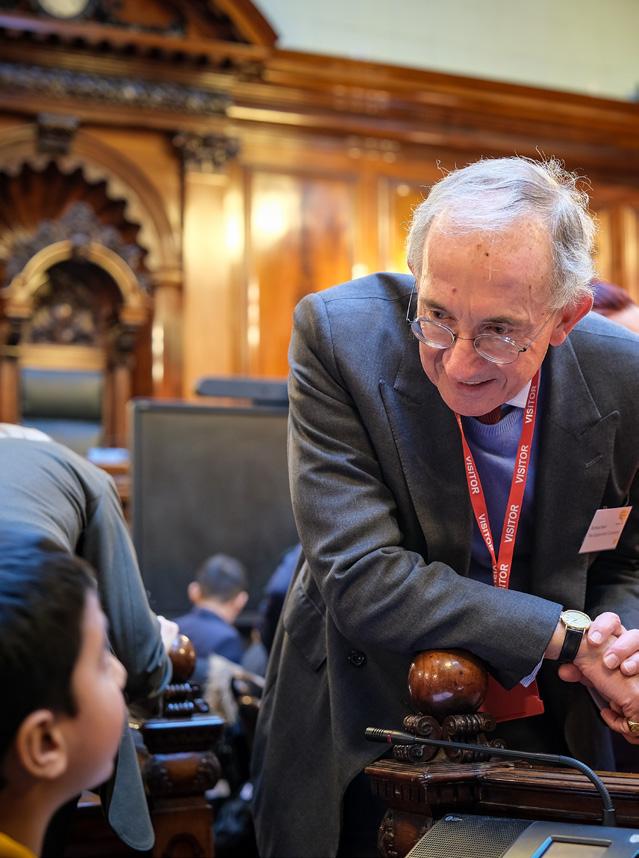
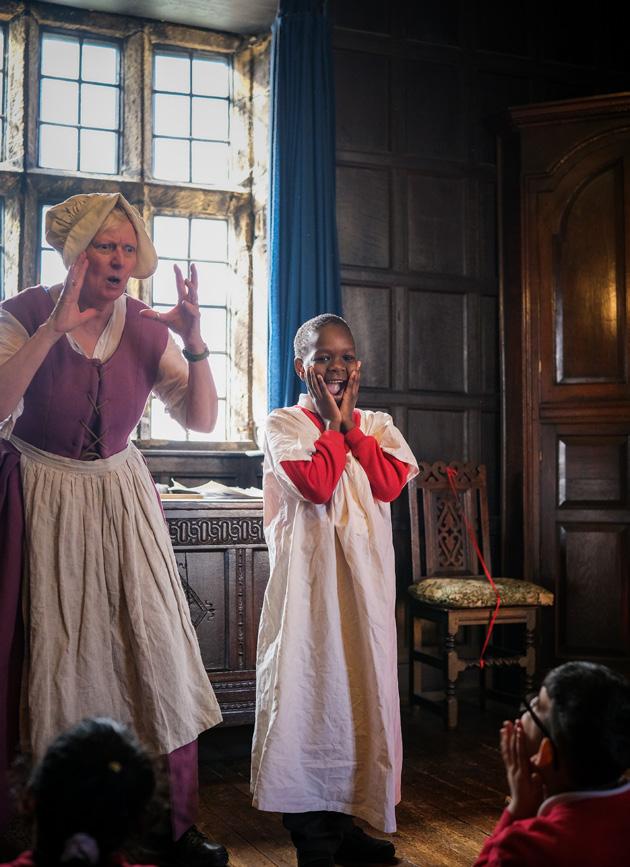

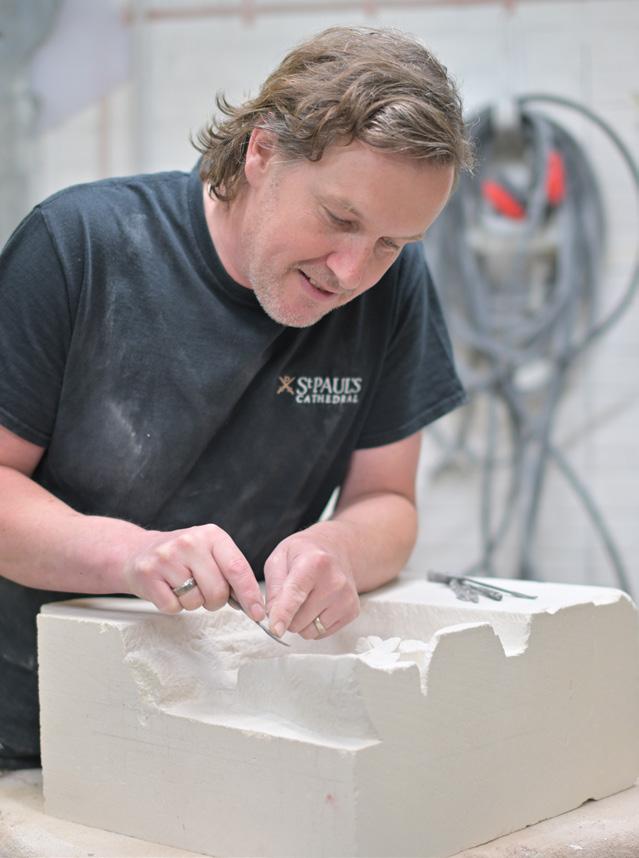
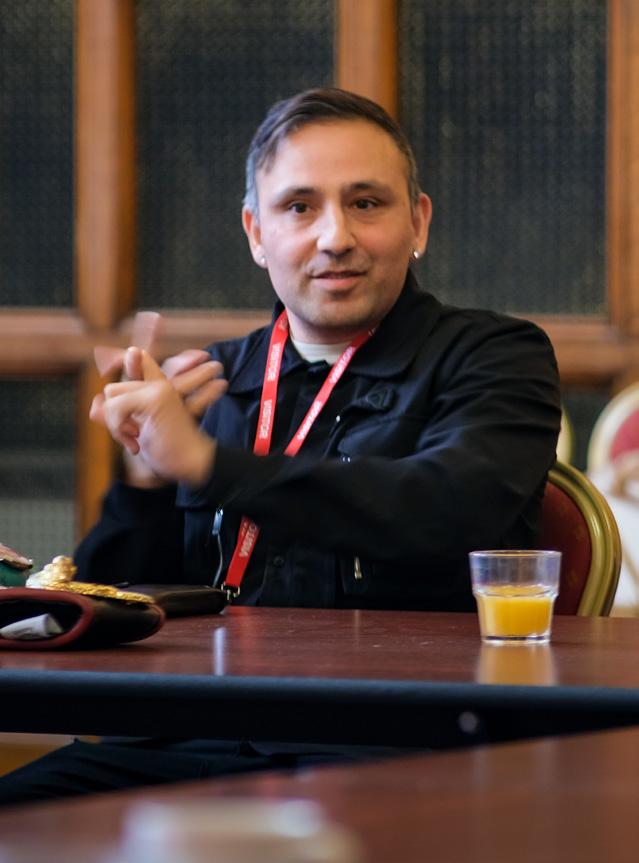
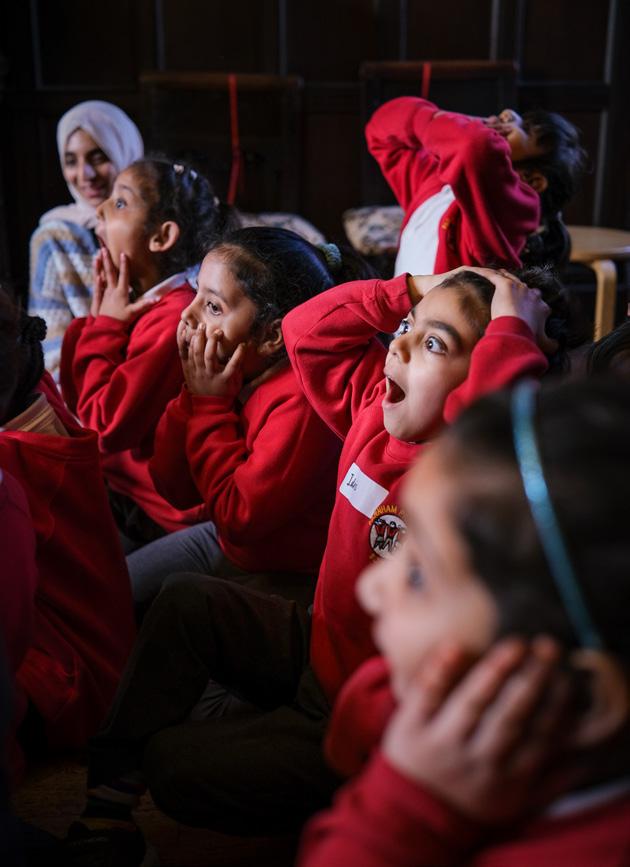
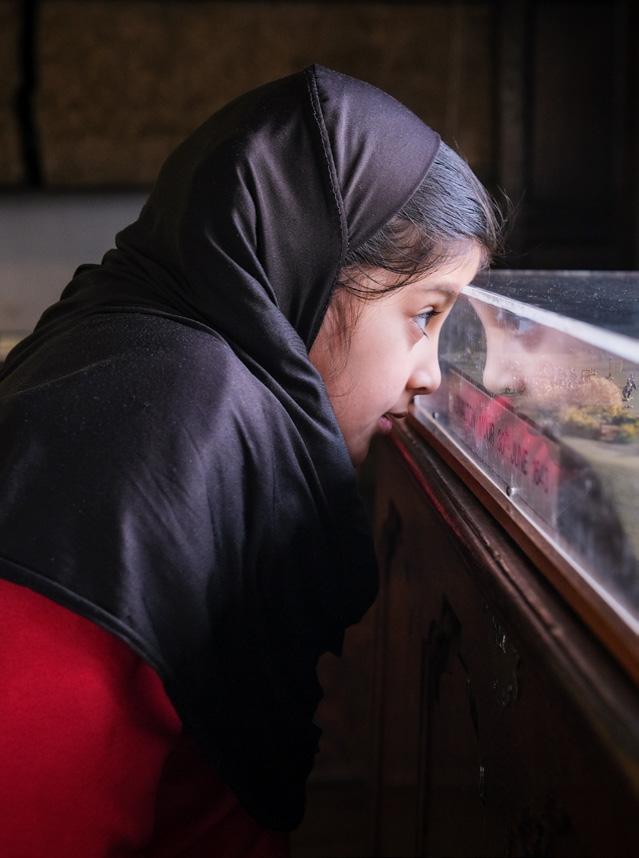

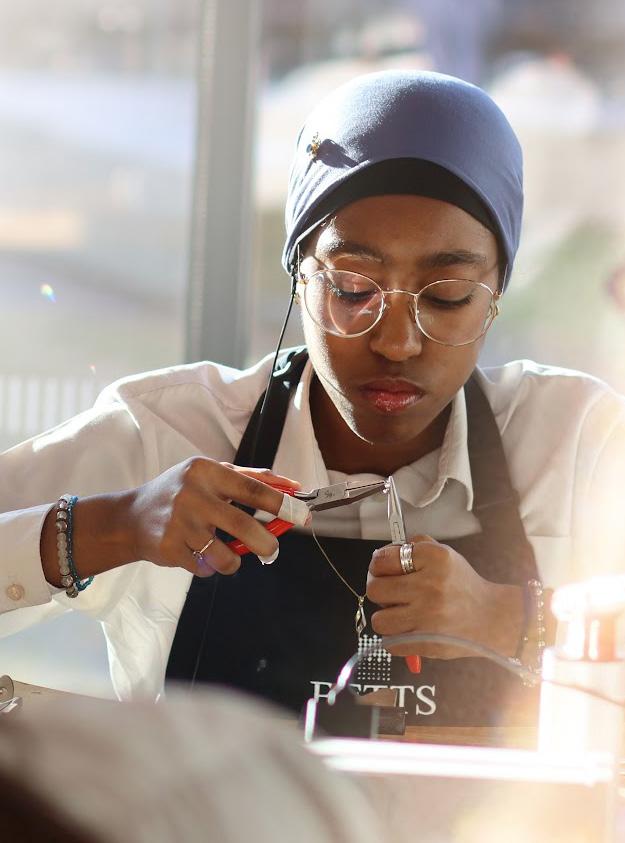










The Goldsmiths' Company celebrates its 700th anniversary in 2027. As part of its ambitious programme to mark this occasion, including a gallery in the new London Museum, our Landmark Programme will award up to £10million worth of grants from the Goldsmiths' Foundation (the Foundation) in three tranches between 2023 and 2035.
The programme aims to maximise the Foundation's impact by creating opportunities through the development of technical and vocational skills, making a lasting difference to those they support.
In 2023, grants of £500,000 were awarded to Aston University Engineering Academy (AUEA), the National Literary Trust, St Giles Trust, and St Paul's Cathedral.

The span of projects in the Goldsmiths’ Foundation’s Landmark Programme is remarkable. They range from equipping prison leavers with skills to rebuild their lives, to training the next generation of talent for Birmingham’s Jewellery Quarter; and from a Year 2 ‘reluctant reader’ lit up by the magic of words, to the gleaming tip of St Paul's Cathedral restored as a beacon for heritage craft skills. At first glance, there might not be all that much in common. Yet, these projects are rooted in deep understanding of the communities they serve.
This first Impact Report takes stock of progress at the end of the programme’s first year. Our partners reached 1,601 people in the last twelve months. But it is not really about numbers. Much more important is each individual life that is touched and transformed. Those individuals, in turn, contribute to transforming their local areas and to evolving their communities of practice to effect lasting, systemic change. In other words, at the heart of this programme are people, practice and places.
There are many early wins. The National Literacy Trust has doubled the number of children it plans to reach in Bradford, City of Culture 2025. St Giles has flexed its delivery in response to challenges in the criminal justice system. St Paul’s has used its Landmark Grant as the impetus for creating the International Wren Centre of Excellence. And the Goldsmiths Institute at Aston University Engineering Academy (AUEA) has welcomed the nation’s first cohort of the Jewellery T-Level course
One year in, at Goldsmiths’ Foundation, we couldn’t be prouder of our partners. With grit, imagination and determination, each is making a tangible difference to making their corner of the world just a little bit better. We can’t wait to see what they do next.
What excites me most about the Landmark Programme is seeing how skills development can truly change lives and communities. From young students discovering their passion for jewellery-making in Birmingham, to prisoners gaining new skills and confidence, to children in Bradford finding their voice through writing – we're not just funding projects, we're igniting transformations. As we approach our 700th anniversary in 2027, I'm proud that the Goldsmiths' Foundation continues its centuries-old tradition of nurturing craft and creativity, while building bridges to brighter futures for some of our most deserving communities.
Michael Prideaux Court Assistant, Goldsmiths’ Company, Interim Chair, Goldsmiths’ Foundation & Chair of the Landmark Selection Panel
Annie Warburton Clerk and CEO, Goldsmiths’ Company

Goldsmiths’ Landmark Programme aims to make a lasting difference by investing in people—supporting new ways to build skills, boost self-belief, and improve wellbeing and confidence in the future. This approach leads to sustained progression in education and employment.
It’s also about practice—changing how pupils, students, apprentices, and people in prisons are taught, supported, and empowered. And places—leaving a mark on the London skyline, in prisons across the country, the Jewellery Quarter in Birmingham, and schools and communities in Bradford.
I see daily how vocational and technical skills become catalysts for social change. Our programmes across schools, cathedrals, prisons, and communities demonstrate that when we invest in craft expertise, we're investing in human potential. We're not just teaching techniques—we're building pathways to employment, fostering resilience, and creating the skilled workforce our creative industries need. This intersection of traditional craft and social innovation is where real transformation happens.
Michelle O'Brien Foundation Director, Goldsmiths' Foundation


Landmark Programme funding has allowed progression to RIBA Stage 3, commencing in Summer 2025a major step in short time for a huge and complex project.
Two Apprentice roles defined: Carpenter and Stonemason to start Summer 2025.
St Paul's Landmark Grant is part of a major heritage restoration and conservation project of its Cupola, Ball, and Cross - the structure that rises from the Golden Gallery on top of the Dome, which at 365ft high is an iconic symbol of the City of London. Dating from 1710, and last restored in 1821, the Cupola is now reaching the end of its structural life and requires extensive essential repairs. The multimillion-pound project will raise awareness of heritage craft skills and train apprentices in the skills required for the restoration, such as masonry, lead working and gilding.

The project has stimulated plans to preserve heritage craft skills, create a better workspace and showcase craftspeople and their vital skills.
Plans for the International Wren Centre of Excellence will be developed in the undercroft space of the Cathedral, for onsite works, sharing of knowledge, best practice and creating learning spaces.
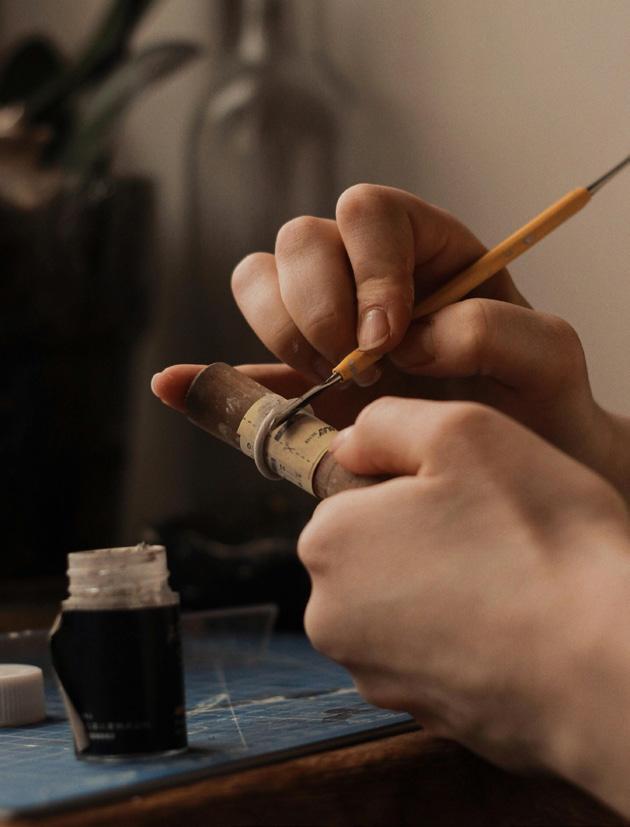


and skills for craftspeople of today and for the future
Specialist heritage knowledge, expertise and practical skills preserved and passed on to the next generation.
Two skilled apprentice carpenter and stonemason roles have been created.
Extensive collaboration of multiple crafts, heritage and trade experts to restore the Dome, Cupola, Ball & Cross.
heritage skills and sharing expertise
Amplifying the restoration project with a focus on craftspeople will preserve, strengthen and celebrate the skills required for this complex heritage project.
Visitor opportunities will build awareness and knowledge of St Paul’s and the people and skills to preserve it.
This partnership presents us with a great opportunity to celebrate St Paul’s heritage and the skills of all the people responsible for building and sustaining it, from Christopher Wren to those working on this new project. With the help of the Foundation, St Paul’s will be preserved in all its glory for worshippers and visitors for generations to come.
London’s skyline fully restored
Supported by the purpose-built Wren International Centre of Excellence, the project will bring heritage crafts into the public eye, with craftspeople and apprentices visible, at work, to the visitors and school pupils. Visibility will raise awareness of the City’s heritage and the need to preserve it for future generations.
The Royal
RIBA 1: COMPLETED
• Project Initiation Document Complete.
• Identified 35 areas for research, investigation and analysis.
• Partnerships of experts, staff and craftspeople.
RIBA 2: IN PROGRESS
• Consultants’ surveys and research includes
• expertise from engineers to surveyors,
• fabric archaeologists and access consultants.
• Investigations included: archives and history,
• visitor engagement, windows, doors, reguilding,
• dome leadwork, asbestos and fire safety.
RIBA 3: COMMENCES SUMMER 2025
• Collaboration between consultants, staff and volunteers •
• will result in a detailed, coordinated, costed proposal.
The three-year programme is enabling prisoner Learners to support others and improve the prison environment, while strengthening employment pathways for 82 Learners in 5 prisons to achieve the Level 3 qualification in Advice & Guidance with longer term positive impact for individuals.
People in prison are amongst some of the most disadvantaged people in society and empowering them with positive opportunities to boost their skills and confidence delivers benefits for everyone, through reduced re-offending.
Nicky Park Director of Criminal Justice and Women’s Services

St Giles has encountered major delivery challenges in prisons, including unstable populations, early releases, and restricted movement, which disrupt learner continuity. In response, the team has adopted more flexible approaches, including community-based support and closer coordination with prison staff, to maintain learner engagement and progression.
Peer Empowerment Programme (PEP) will empower 82 learners in 5 prisons (3 of which are women’s prisons) to develop new skills and gain recognised Level 3 qualifications in Advice & Guidance. This qualification provides skills in supervision and management and on the job training, as well as pathways into placements through the PEP, to create long-term, transformative change for those leaving prison.
Changing practice:
St Giles’ support of the prison in improving and updating their Release on Temporary Licence (ROTL) policy has ensured support of more ROTL placements in the future.
43 learning to advise participants.
Benefitted from improved wellbeing.
Gained access to services, training or other support in the prison.
13 Peer Advisors
Level 3 Advice & Guidance already Certified (will be 82 by 2027).
Had additional pre-release support.
7 Peer Advisors already in paid employment. Another 3 have gone into voluntary placements.
Supported 224 clients in 5 prisons, which has already increased quality of peer support, reduced tensions and created a more inclusive and supportive culture within prisons.
Aston University’s Goldsmiths Institute is re-establishing and reinvigorating pathways into goldsmithing, silversmithing and allied trades, from primary schools through to the first national Jewellery T-Level course and work placements in Birmingham’s Jewellery Quarter.
248
176 primary and secondary school children introduced to jewellery making, with local history projects, hands on making activities and careers advice and guidance.
Y9 and Y10 students have participated in new curriculum jewellery projects, learning jewellery design and manufacturing skills, and building increased awareness of jewellery making as a career.
Aston University Goldsmiths Institute’s key challenge lies in continuous recruitment of future T Level cohorts. Strong foundations have been laid through in-school engagement and outreach to primary and secondary pupils, but sustained effort and staffing are essential to build a reliable pipeline. Three new staff members joined in May to expand reach, raise awareness, and secure committed learners for the programme.
New teaching and learning resources created. 3 teachers trained in jewellery making skills and awareness of career opportunities. 2 new members of staff have been recruited to meet demand.

6 students studying the first national Level 3 Jewellery T-Level.
7 Employers within Birmingham’s Jewellery Quarter have already provided 21 work placements.

Signet Ring Design Competition has garnered industry support; identified young talent; and served as a direct entry point into jewellery education.
State-of-the-Art, fully fitted, T Level Workshop, with studio and exhibition space is under construction to be opened in autumn 2025. The temporary studio, equipped with high-end specialist tools, and a professional-standard environment to develop skills is currently in use.

The Goldsmiths Institute will provide a direct skills training Centre for students and staff, creating a sustained talent pipeline for Birmingham’s Jewellery Quarter supporting the city’s young people to obtain the emerging and advanced skills needed to be part of the future workforce.
Professor Stephen Garrett, Pro-Vice-Chancellor and Executive Dean of the College of Engineering and Physical Sciences, Aston Universtiy
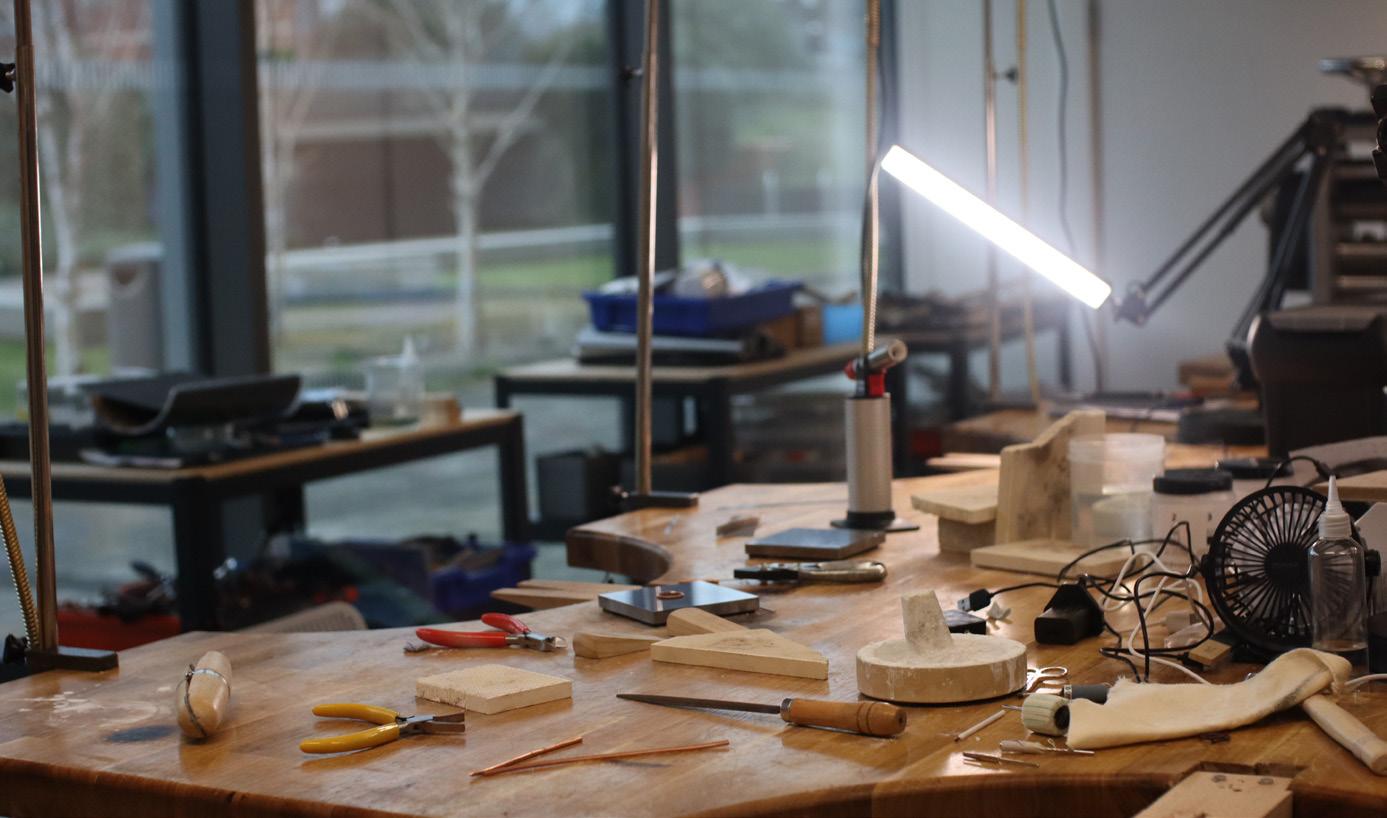
Students have showcased their talent nationally by designing and creating bespoke jewellery for Lord Baker and The Baker Dearing Trust. This opportunity highlights the skill and creativity gained through the project, proving their work holds real value and recognition.

T Level students showcased key jewellery pieces they designed in their inaugural exhibition, Enter the Light, highlighting their advanced skills in design, curation and exhibition artwork production.
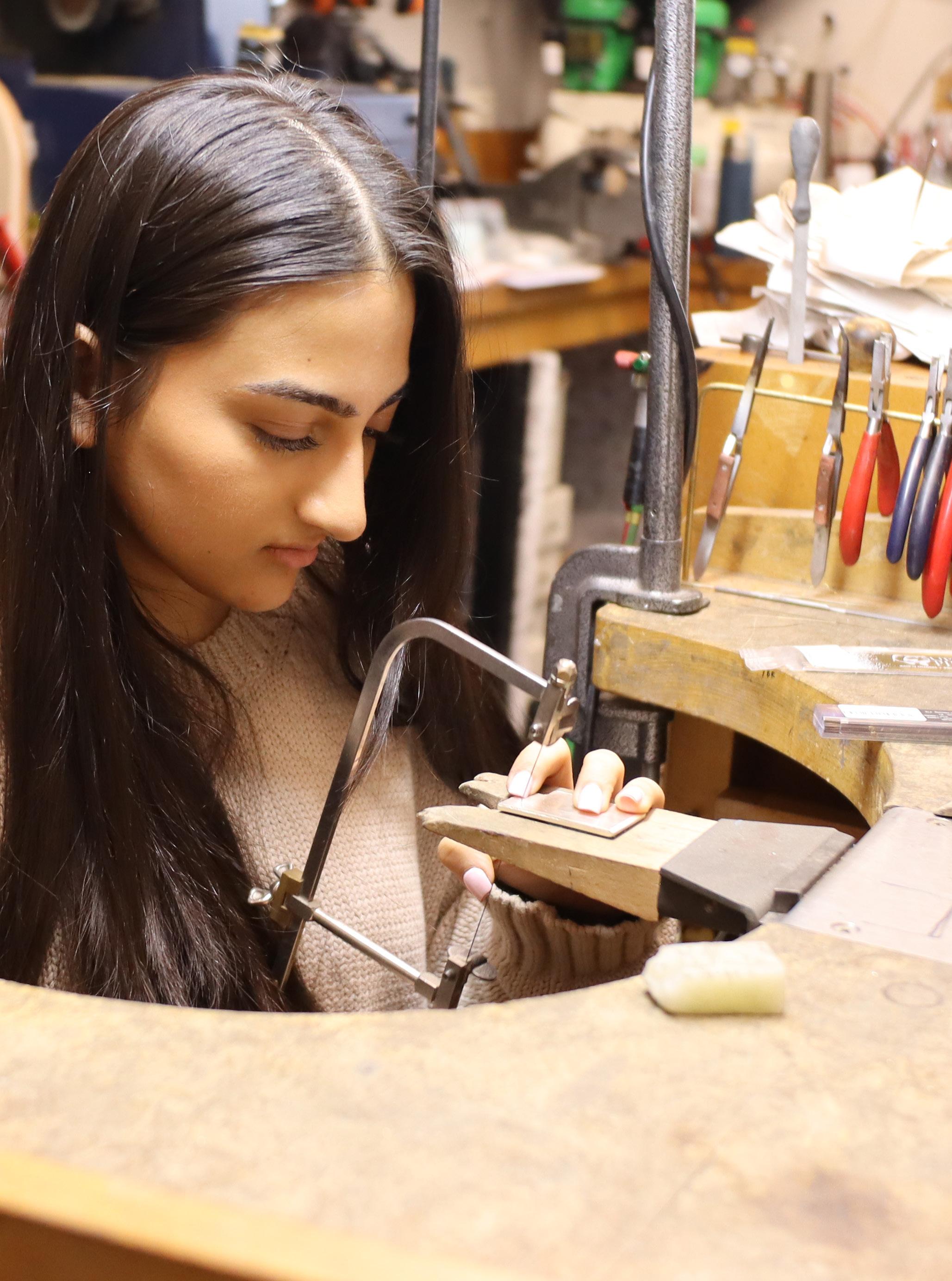
“I can now see myself doing this, as a respectable job, as a respected person,” said a Year 10 student whose outlook has been transformed through his participation in the Y10 new curriculum jewellery projects. While navigating his SEND needs and previous behavioural difficulties, he has now excelled in jewellery-making, provided with the right learning environment and support. His teacher notes his exemplary engagement, and these sessions have become the highlight of his week. Building on this success and with continued appropriate support, he's aiming to achieve five strong GCSEs to progress onto the Jewellery T Level course, channelling his passion into a future career.
The

The Goldsmiths 500 Writers challenge, is a three-year writing initiative to improve the literacy skills of 1,000+ children living in disadvantaged communities across 21 primary schools in Bradford, through fully funded visits to local cultural and heritage venues, alongside teacher training. As part of the programme, pupils will enjoy six fully funded visits to Bradford’s cultural and heritage sites, including theatres, sporting venues, and museums.
Research has shown that providing pupils with memorable experiences outside the classroom can motivate them to write and can impact progress. By drawing threads from arts, culture, local heritage and history, the programme will create a rich environment of experiences, inspiration and influences to fuel the children’s writing.
Some cultural venues lack the capacity to deliver suitable programmes for 6–7-year-olds. NLT has responded by supporting venues to create age-appropriate workshops and teaching materials, building their ability to offer meaningful early learning experiences and highlighting the need for continued support throughout the programme.

Delivering memorable experiences and teaching designed to inspire and support literacy in Bradford: 1,048 pupils
Year 2, 3 & 4 pupils recruited at 21 schools.
Trained and provided with resources, books and a virtual learning platform, allowing teachers to collaborate and support each other, enhancing literacy teaching across primary schools in Bradford.
Trained and equipped with skills, confidence and resources, including books and a virtual support platform.
9 key cultural venues
Onboarded as project partners. Each venue has been supported to develop engaging visits and workshops designed to inspire children’s creative writing outcomes.
A diverse and engaging range of memorable experiences will inspire writing projects and foster a deeper connection with local heritage.
Over 1,000 pupils
First visit to a Bradford cultural venue completed for over 1,000 pupils, starting their journey to improved literacy and closing the attainment gap that widens at this educational stage.
Contributing to the Bradford City of Culture 2025 with ‘Share Your Story’, encouraging children to write their stories and celebrate the diverse stories of Bradford.
W e know that literacy changes everything, and is the key to knowledge, confidence and inspiration. If a child grows up without the tools to communicate, without books to read or opportunities to write, it will be harder for them to get where they want to go. So, we are very grateful to the Goldsmiths' Foundation for this opportunity to help children in Bradford change their stories.
Andrew Ettinger Director of School Programmes at The National Literacy Trust



In 2027, the Goldsmiths’ Landmark Programme will have:
Trained new heritage craftspeople, proudly showcasing their specialist skills in a “Centre of Excellence” while restoring a treasured national landmark.
Provided the next generation of young talent with opportunities for careers in jewellery making.
Inspired and equipped young students to write their stories, becoming more connected to their city of Bradford.
Creating a better culture and environment in prisons to give more vulnerable people a fresh start in life and support their transition into employment.

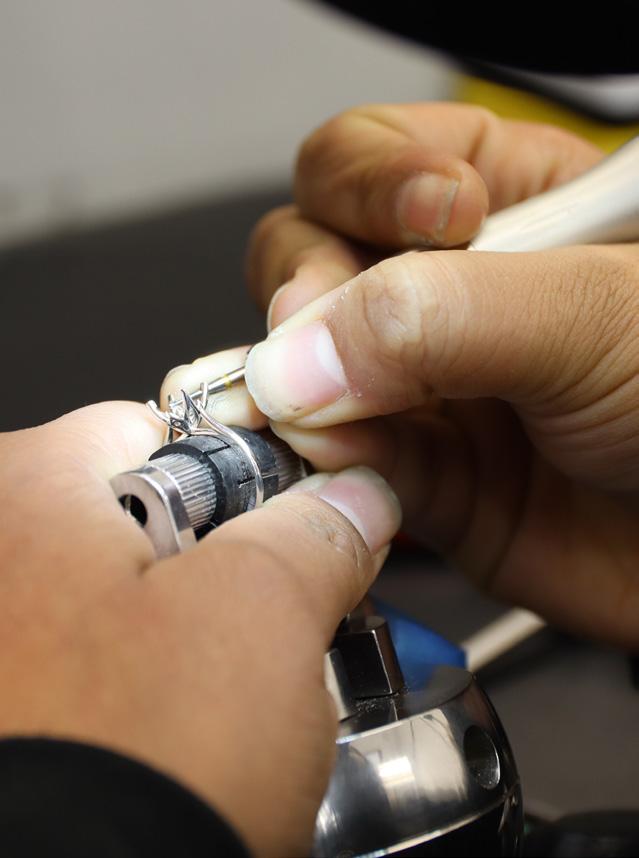




With thanks to Bean Research
The Goldsmiths’ Foundation is a charity registered with the Charity Commission for England and Wales with number 1175593. It is a company limited by guarantee and registered in England and Wales with company number 11048746.